

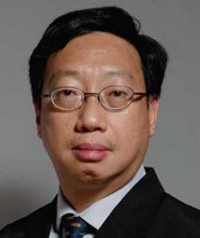
IEEE Fellow
Prof. King-Jet Tseng, Singapore Institute of Technology, Singapore
Bio: King-Jet Tseng was born in Singapore and received B.Eng. (First Class) and M.Eng. from National University of Singapore, and Ph.D. from Cambridge University in England. He is a Fellow of IEEE, Fellow of IET, a Fellow of IES and registered as Chartered Engineer with UK Engineering Council. He has more than 35 years of academic, research, industrial and professional experience in electrical power and energy systems. Currently, he is the Professor and Advisor for Electrical Power Engineering at Singapore Institute of Technology, working on his vision of future urban electrical distribution architecture which can provide flexible and heterogeneous power quality for greater sustainability. He continues to contribute to the International Electrotechnical Commission as a standardization expert for grid-integrated electrical energy storage systems.
Speech Title: Designing Electrical Energy Storage Systems for Sustainable Energy Grids
Abstract: Designing electrical energy storage systems for grid-integrated applications involves addressing the challenges of integrating renewable energy sources into the power grid. These systems play a crucial role in enhancing grid stability, reliability, and efficiency by providing services such as frequency regulation, voltage support, and power quality improvement. The design process includes selecting appropriate storage technologies, such as lithium-ion batteries, pumped hydro storage, or flywheels, based on factors like energy density, efficiency, and cost. Additionally, it involves developing control strategies to manage the charge and discharge cycles, ensuring optimal performance and longevity of the storage system. Integration with renewable energy sources, such as solar and wind, requires advanced forecasting and energy management techniques to balance supply and demand effectively. Furthermore, compliance with international standards and regulations, such as IEC 62933 and UL 9540A, is essential to ensure safety and reliability. Overall, the successful design of grid-integrated energy storage systems is key to achieving a sustainable and resilient energy future。
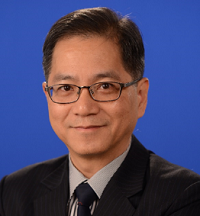
Prof. Dennis Y.C. Leung, the University of Hong Kong, Hong Kong, China
Bio: Prof. Dennis Y.C. Leung received his BEng (1982) and PhD (1988) from the Department of Mechanical Engineering at the University of Hong Kong (HKU). Professor Leung joined HKU Mechanical Engineering Department in 1993 as a lecturer, became a full professor in 2007 and head of department in 2020 till 2023. Professor Leung specializes in environmental pollution control and renewable & clean energy research. He has published more than 600 articles in this area including 370+ peer reviewed papers in top SCI journals such as Nature Communications, Energy and Environmental Sciences and Advanced Materials. His current h-index is 100 and total citations are 52000+. He is one of the top 1% highly cited scientists in the world in energy field since 2010 (Essential Science Indicators) and named as a Highly Cited Researcher by Clarivate Analytics for six consecutive years from 2017 to 2022. Prof. Leung has delivered more than 80 keynote and invited lectures in many international conferences. Prof. Leung is a chartered engineer, a fellow of the IMechE and Energy Institute. He was also the Past Chairman of the Institute of Energy (HK Branch), and currently serves as an editorial board member for a number of journals including Applied Energy, Energy Conversion and Management, Applied Sciences, and Progress in Energy. Prof. Leung also serves as a board member of the Hong Kong Institution of Science, chairman and member of a few committees of the HKSAR government and government’s appeal board panels related to sustainable energy and environment. Professor Leung received the Environmental Champion Award (Hong Kong) in 2008 and Advanced Materials Laureate from the International Association of Advanced Materials in 2024.
Speech Title: Application of nano-photocatalytic technology for enhancing environmental and energy performance of ships and submerged water surfaces
Abstract: Fouling is a prevalent issue in seawater, as it involves the accumulation and growth of microorganisms like barnacles and tubeworms on all submerged objects. To prevent fouling on surfaces underwater, antifouling coatings are typically applied to boats, yachts, and seawater cooling gates. This not only enhances the speed of ships but also improves the efficiency of water-cooled air conditioning systems. In this keynote speech, I shall first discuss the general materials used for fouling protection and their limitations in usage. Furthermore, a newly developed nano-sized photocatalytic coating that effectively controls the growth of microorganisms on yacht hulls and seawater gates will be introduced. By utilizing these materials, the need for frequent removal of deposited microorganisms is minimized, reducing maintenance costs and improving fuel efficiency. Towards the end of the talk, the prospects of applying these photocatalytic materials to control antifouling on other marine structures will be explored.
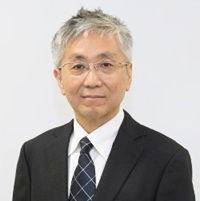
Prof. Koichi Haraguchi, National Institute for Minamata Disease, Ministry of the Environment, Japan
Bio: Dr. Haraguchi is the Chief of the Mercury Analysis Technique Section at the National Institute for Minamata Disease (NIMD), Ministry of the Environment, Japan. He earned his Ph.D. in Agriculture from the Graduate School of Agricultural Science, Tohoku University. His research focuses on mercury exposure assessment and analytical quality assurance. He has led the development and provision of certified reference materials (CRMs) to improve the reliability and comparability of mercury measurements across laboratories. He also coordinates international proficiency testing programs in collaboration with the UNEP, and contributes to technical cooperation efforts through the JICA, particularly in Central America. These activities support the implementation of the Minamata Convention by promoting reliable data and enhancing analytical capacity worldwide.
Speech Title: Scientific Support for the Minamata Convention: Mercury Exposure and Analytical Capacity Building
Abstract: Mercury exposure remains a significant concern for vulnerable populations, including workers engaged in traditional artisanal practices and consumers of unregulated skin-lightening products. To support the implementation of the Minamata Convention, targeted exposure assessments and laboratory capacity-building efforts have been conducted in collaboration with UNEP and other partners. This presentation highlights field studies on elemental mercury exposure among gold-plating workers in Nepal, where limited protective measures have resulted in elevated health risks. It also introduces recent findings on mercury content in skin-lightening creams, some of which are fraudulently labeled or traded across borders. In parallel, an international proficiency testing (PT) program was launched to strengthen analytical capacity for mercury determination, with active participation from laboratories in Asia, Africa, and Latin America. These efforts aim to improve data reliability and support national mercury monitoring frameworks. Through these integrated activities—field surveys, consumer product analysis, and PT-based technical assistance—this talk illustrates how scientific collaboration contributes to evidence-based policy development and protects communities most at risk from mercury exposure.
Prof. Pasquale Avino, University of Molise, Italy
Bio: Pasquale Avino received his Master Degree in Chemistry in 1992 and his Ph.D. in Chemical Sciences at the University of Rome “La Sapienza” in 1997. He was appointed as Post-Doc (1997-1998) at the Department of Chemistry of the University of California, Irvine (UCI) in the Rowland (Nobel Prize in chemistry in 1995) and Blake group. From 1999 until January 2018, he was appointed as Researcher at the ISPESL/INAIL Research Center and from February 2018 to January 2021 Prof. Avino was appointed as Three-years Term Researcher contract and from February 2021 he is currently Associate Professor at the Department of Agricultural, Environmental and Food Sciences of the University of Molise, Campobasso, in Analytical Chemistry and Environmental Chemistry. He is following the studies devoted to the development of innovative analytical methodologies for development and application of analytical and sampling methods for the qualitative and quantitative determination of chemical compounds (e.g., contaminants, pollutants, nutrients) in food, agricultural, biological and anthropogenic matrices.
He was the recipient of the “Group Achievement NASA Award” in 1998. In 1998 he was awarded with the “Next Generation Award” during the 22nd International Symposium on Chromatography. In 2003 he was the recipient of the “Environmental Sapio” Award for his research in the environmental field. In 2022 he received the Medal for Ecology from the Moldavian Chemical Society. In 2024 he received the highest honor of the Institute of Ecotoxicology and Environmental Sciences (IE&ES), the “Fellowship Award” for your outstanding contribution to the society through the field of environmental science.
Prof. Avino is author and co-author of different scientific publications including original papers published on national and international journals and books (from Scopus data-base, https://www.scopus.com/authid/detail.uri?authorId=55916508700: 231 papers, 4722 citations, hindex 41).
Speech Title: Artificial Intelligence for Air Quality Assessment and Management: Current Challenges, Emerging Applications, and Future Perspectives
Abstract: Air quality—both indoors and outdoors—has become one of the most urgent and multifaceted environmental issues of our time, attracting growing concern from scientists, policymakers, and the public alike. The increasing body of research underscores how deeply air pollution affects not only human health, but also social and economic stability on a global scale (Wu et al., 2024). Exposure to pollutants such as particulate matter, nitrogen oxides, and volatile organic compounds is now recognized as a leading contributor to respiratory and cardiovascular diseases, cognitive decline, and premature mortality. Beyond health, deteriorating air quality exacerbates environmental degradation, influencing climate dynamics and reducing overall quality of life in urban and rural areas alike.
Despite considerable scientific progress and the establishment of monitoring networks worldwide, the field of air quality research continues to face significant challenges. Many key variables—such as pollutant dispersion, source attribution, and chemical transformations in the atmosphere—remain difficult to quantify with precision. The prediction of short-term pollution peaks or long-term concentration trends is complicated by the intricate interplay of meteorological, geographical, and anthropogenic factors (Jin et al., 2022). These complexities highlight the limitations of conventional monitoring and modeling approaches, which often struggle to capture non-linear relationships and spatial variability at fine scales.
In recent years, artificial intelligence (AI) has emerged as a transformative ally in addressing these limitations. A growing number of studies (Amin Al-Habaibeh et al., 2024) demonstrate the capacity of AI to revolutionize air quality monitoring and forecasting systems. Machine learning and deep learning algorithms have been successfully applied to tasks such as vehicle detection, traffic volume estimation, and pollutant concentration prediction, often achieving levels of accuracy that surpass those of traditional statistical methods prone to human error and data gaps. Furthermore, AI offers the ability to process vast amounts of heterogeneous data—from satellite imagery and sensor networks to social media feeds—in near real time, substantially accelerating both data collection and analysis while minimizing anomalies and uncertainty in results.
Among the most promising AI approaches are Decision Trees, Random Forests, Convolutional Neural Networks (CNNs), and hybrid frameworks that combine multiple algorithms to capture complex variable interactions. These methods not only enhance predictive performance but also improve interpretability and scalability across diverse urban and climatic contexts. However, despite their potential, the widespread adoption of AI-based air quality systems remains constrained by several factors, including high computational and equipment costs, limited access to high-quality training datasets, and a persistent shortage of interdisciplinary expertise capable of bridging environmental science and data science (Olawade et al., 2024). Overcoming these barriers will be crucial to fully harnessing the power of AI for cleaner air and healthier, more resilient communities.
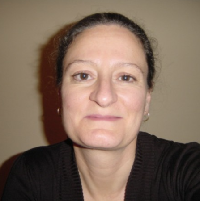
Prof. Helena Nadais, University of Aveiro, Portugal
Bio: Helena Nadais is a Chemical Engineer and Assistant Professor at the University of Aveiro, specializing in environmental sciences with a particular focus on water and wastewater treatment processes. Her academic background includes a Master Degree in Chemical Engineering, specializing in Processes and Industry, from Lisbon Technical University and a PhD in Applied Environmental Sciences from the University of Aveiro. Her doctoral research pioneered new methodologies for treating industrial wastewater with an emphasis on energy recovery. Nadais has been a faculty member since 2003, teaching and doing extensive research in the treatment and valorization of water and industrial effluents. She is recognized for her scholarly contributions with an H-index of 19, and she has authored 38 publications in WoS-indexed journals. Her professional engagements include leading and participating in numerous national and international research projects, fostering industry-academia collaborations, and enhancing the application of sustainable practices in environmental management. Helena Nadais is currently involved as scientific researcher in four national and international research projects focusing on material and energy recovery from wastes.
Speech Title: Bioreactors for Sustainability: Microbial Communities Turning Microelectronics Effluents into Circular Opportunities
The microelectronics sector, fundamental to smart technologies and digital transitions, generates highly complex effluents rich in solvents, metals, and recalcitrant compounds. Their safe treatment is essential to minimize environmental impacts and to advance sustainable industrial development. In this keynote, we present insights from long-term anaerobic treatment experiments in semi-continuous bioreactors, designed to evaluate the acclimation of microbial communities to semiconductor wastewater. Over more than 130 days of operation, we monitored system performance through methanization efficiency, Chemical Oxygen Demand removal, and the stability of metabolic pathways, complemented by high-resolution microbial community analysis (16S rRNA gene sequencing). Results confirm the resilience of anaerobic biomass sourced from municipal wastewater treatment plants, demonstrating the capacity of microorganisms not only to adapt but also to biodegrade challenging effluent compositions, while producing renewable energy as biogas.
Beyond technical performance, this research underscores its contribution to the United Nations Sustainable Development Goals (notably SDG 6) by promoting access to clean water and effective wastewater management. By transforming industrial effluents into a resource stream—recovering energy, valorizing biomass, and reducing pollutant loads—the approach reflects the principles of the circular economy and offers a pathway to decarbonize and green high-tech industries. Monitoring microbial dynamics provides the scientific basis for optimizing biological processes, enabling more robust and tailored strategies for industrial wastewater treatment.
This work highlights how biotechnology and microbial ecology can converge to support sustainable industry practices, reduce dependence on fossil-based processes, and foster environmental protection. By closing loops in water and energy use, anaerobic bioreactors treating microelectronics wastewater stand as a compelling example of innovation at the service of sustainability.
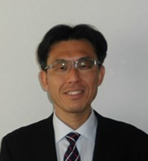
Assoc. Prof. Akira Nishimura, Mie University, Japan
Bio: Dr. Akira Nishimura is an associate professor in Division of Mechanical Engineering at Mie University, Japan. He received the B.S. Eng., the M.S. Eng. and Dr. Eng. degrees in Chemical Engineering from Nagoya University, Japan in 1995, 1997 and 2000, respectively. He worked at Center for Integrated Research in Science and Engineering, Nagoya University as research associate from 2000 to 2002. He moved to Mie University in 2002 as an assistant professor and promoted to associate professor from 2014. He has published 107 journal papers which are reviewed. His current researches are clarification on heat and mass transfer mechanism of polymer electrolyte fuel cell, CO2 reduction by photocatalyst, H2 production from biogas and smart city utilizing renewable energy actively.
Speech Title: Clarification on Reaction Characteristics of Biogas Dry Reforming Membrane Reactor
Abstract: The production of H2 as a clean energy carrier has attracted considerable attention in recent years because of its potential to address climate change and decrease reliance on fossil fuels. Among the different methods for generating H2, biogas dry reforming (BDR) stands out as a promising approach to utilize a renewable feedstock and create a valuable product. A biogas is a fuel consisting of CH4 (55 – 75 vol%) and CO2 (25 – 45 vol%), generally. It is produced from fermentation by the action of anaerobic microorganisms on raw materials, e.g., garbage, livestock excretion, and sewage sludge. It can be expected that the amount of produced biogas to increase more and more in the near future. Therefore, this study thinks a biogas is a promising source for producing H2. While biogas is commonly utilized as a fuel for gas engines and micro gas turbines, its lower heating value due to its significant CO2 content can limit power generation efficiency. To overcome this limitation, this study proposes a synergistic system integrating a BDR reactor with a solid oxide fuel cell (SOFC). CO, which is a by-product from BDR, as well as H2, can be used as a fuel for SOFC. Consequently, this study thinks that this system can be used for a wider operation application compared to the existing system. Many researches on BDR have been reported. To decide the performance of a BDR reactor, this study thinks the selection of the catalyst is important. According to the literature survey, the Ni-based catalyst has shown promising results, challenges such as catalyst deactivation, carbon formation, and H2/CO ratio control remain to be addressed. Recent advancements in catalyst design and process engineering have aimed to mitigate these issues and enhance the overall efficiency of BDR. For example, the incorporation of promoters or supports can improve catalyst stability and selectivity, while advanced reactor configurations can optimize heat and mass transfer. Though several Ni alloy catalysts have been investigated, few Ni/Cr catalysts were reported, except for the experimental studies using a membrane reactor, which were conducted by the authors of this study. These previous studies reported Ni/Cr catalyst exhibited the better performance compared to Ni catalyst due to it preventing a carbon deposition. The H2 yield obtained by Ni/Cr catalyst was approximately 10 – 100 times as large as that of Ni catalyst, which depended on the experimental condition. The H2 yield increased with the increase in temperature from 400 ℃ to 600 ℃, irrespective of the molar ratio of CH4:CO2. The highest H2 yield, which was 12.8 %, was obtained using Ni/Cr in the case of CH4:CO2 = 1.5:1 at 600 ℃, and the differential pressure between the reaction chamber and the sweep chamber was 0.010 MPa without sweep gas. Additionally, the CO selectivity was much larger than H2 selectivity within the temperature range from 400 ℃ to 600 ℃, which was over 90 %. According to the previous studies, it was thought not only dry reforming (DR) but also the other reactions were conducted. However, the characteristics of Ni/Cr alloy catalyst used for BDR including the other reactions has not been investigated. The aim of this study is to clarify the impact of operation conditions, e.g. reaction temperature and inflow gas molar ratio on biogas dry reforming reaction characteristics. The experimental investigation described above as well as the numerical simulation using the commercial software COMSOL Multiphysics have been carried out to realize this aim.
© 2016-2026 | Copyright ACESD. All rights reserved.